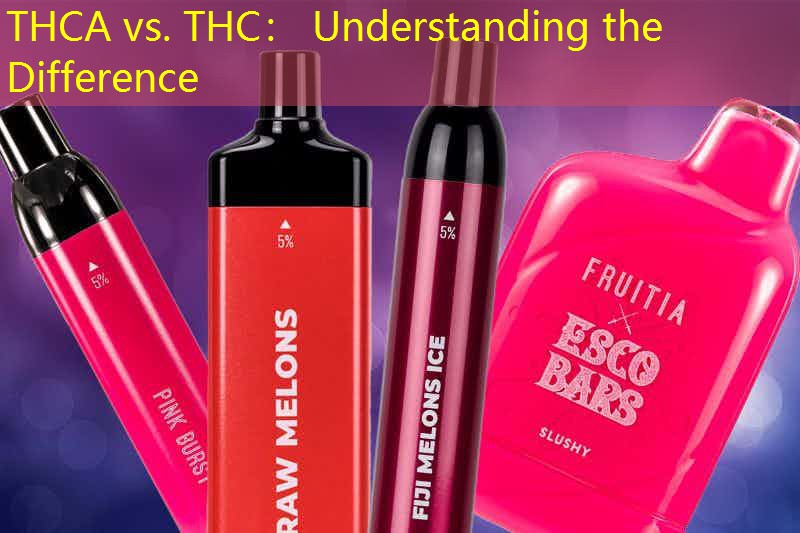THCA vs. THC: Understanding the Difference
THCA vs. THC: Understanding the Difference
As the cannabis industry continues to evolve, two compounds that often come up in discussions are tetrahydrocannabinolic acid (THCA) and delta-9-tetrahydrocannabinol (THC). While both are derived from the cannabis plant and share certain similarities, they exhibit distinct chemical properties, effects, and benefits. Understanding these differences is crucial for consumers, medical users, and those seeking to optimize their cannabis experience.
The Basics of THCA and THC
THCA is a non-psychoactive cannabinoid primarily found in raw cannabis. When the cannabis plant is heated (a process known as decarboxylation), THCA is converted into THC, which is the compound responsible for the psychoactive effects commonly associated with marijuana. This transformation occurs when cannabis is smoked, vaporized, or cooked, making THC the primary compound in most cannabis products consumed recreationally or medicinally.

Chemical Structure and Properties

The chemical structure of THCA features a carboxylic acid group, which prevents it from binding to the CB1 and CB2 receptors in the brain, leading to its non-psychoactive nature. In contrast, THC has lost this acidic group, allowing it to interact with the endocannabinoid system, producing euphoric effects, pain relief, and alterations in mood and perception.
Effects and Benefits
THCA is gaining recognition for its potential therapeutic properties without the high associated with THC. Research suggests that it may have anti-inflammatory, neuroprotective, and antiemetic properties, making it a valuable option for patients seeking natural relief without psychoactive effects. THCA can be consumed in its raw form through juicing, tinctures, or capsules, appealing to those pursuing a health-focused lifestyle.
Conversely, THC is well-regarded for its psychoactive effects, making it a sought-after compound for recreational use. It can enhance mood, stimulate appetite, and provide pain relief. However, it also has potential side effects, including anxiety, paranoia, and cognitive impairment, particularly in higher doses or among inexperienced users.
Consumption Methods
When it comes to product selection, both THCA and THC are available in various forms. THCA is most commonly found in raw flower, tinctures, and concentrates that have not undergone decarboxylation. For consumers interested in the benefits of THCA without the high, these products offer a unique option.

Products with high THC content dominate the market, ranging from traditional flower to edibles, vape pens, and concentrates. For users looking for psychoactive effects, exploring the THC potency and methods of consumption—such as smoking, vaporizing, or consuming edibles—will enhance the experience based on individual tolerance and desired effects.
Conclusion
Understanding the differences between THCA and THC empowers consumers to make informed choices about their cannabis use. For those seeking therapeutic benefits without the psychoactive effects, THCA offers a promising avenue. Conversely, THC remains the compound of choice for those looking for recreational benefits. As research continues to uncover the complexities of these cannabinoids, a better understanding will enhance the overall cannabis experience for users worldwide. When selecting products, consumers should consider their goals and the specific effects they seek, ensuring a suitable match for their individual needs.




